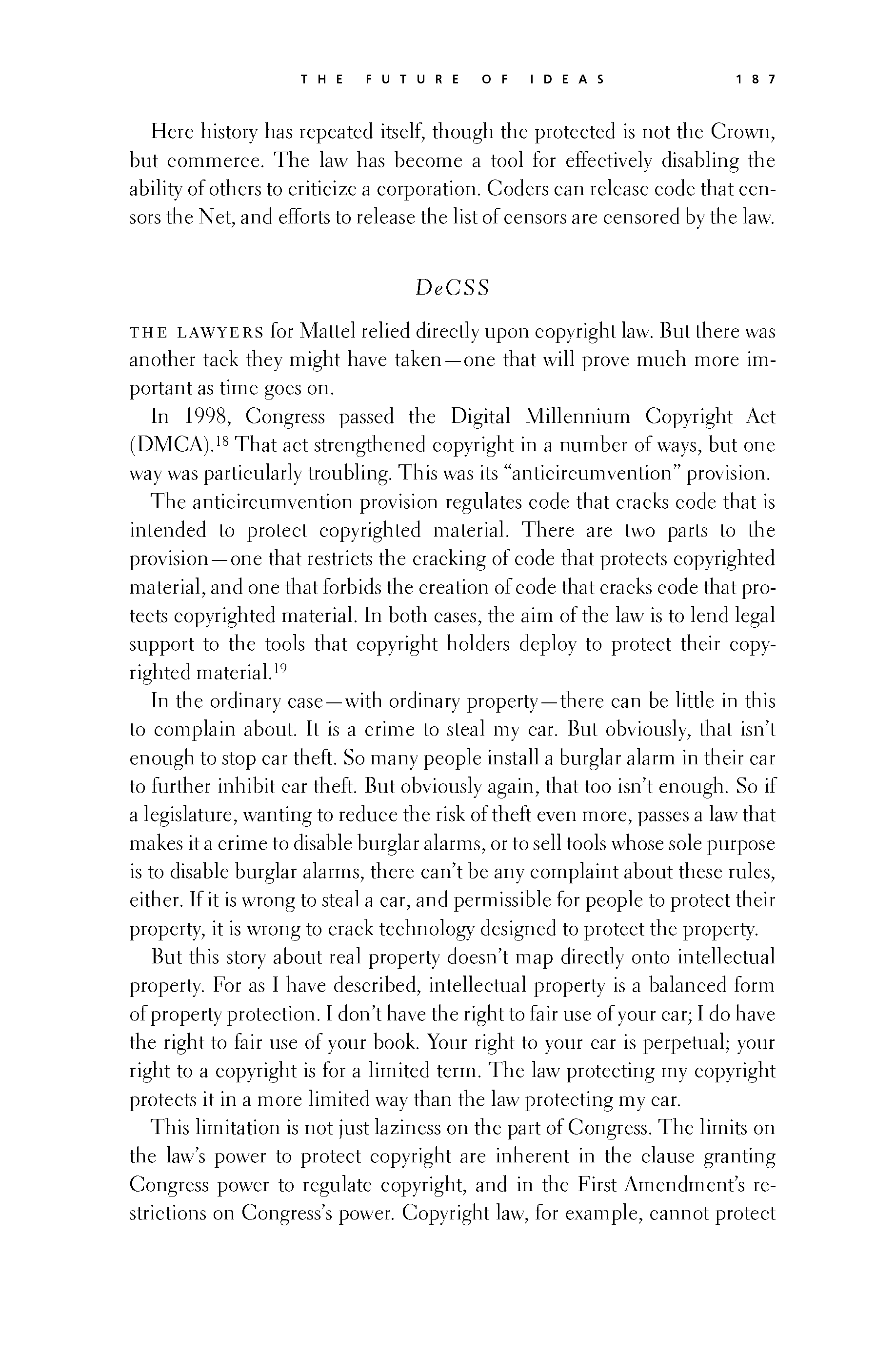 p186 _
-chap- _
toc-1 _
p187w _
toc-2 _
+chap+ _
p188
p186 _
-chap- _
toc-1 _
p187w _
toc-2 _
+chap+ _
p188
Here history has repeated itself, though the protected is not the Crown,
but commerce. The law has become a tool for effectively disabling the
ability of others to criticize a corporation. Coders can release code that cen-
sors the Net, and efforts to release the list of censors are censored by the law.
/tab\/tab\_DeCSS_/tab\/tab\
The lawyers for Mattel relied directly upon copyright law. But there was
another tack they might have taken -- one that will prove much more im-
portant as time goes on.
In 1998, Congress passed the Digital Millennium Copyright Act
(DMCA).[11-18] That act strengthened copyright in a number of ways, but one
way was particularly troubling. This was its "anticircumvention" provision.
The anticircumvention provision regulates code that cracks code that is
intended to protect copyrighted material. There are two parts to the
provision -- one that restricts the cracking of code that protects copyrighted
material, and one that forbids the creation of code that cracks code that pro-
tects copyrighted material. In both cases, the aim of the law is to lend legal
support to the tools that copyright holders deploy to protect their copy-
righted material.[11-19]
In the ordinary case -- with ordinary property -- there can be little in this
to complain about. It is a crime to steal my car. But obviously, that isn't
enough to stop car theft. So many people install a burglar alarm in their car
to further inhibit car theft. But obviously again, that too isn't enough. So if
a legislature, wanting to reduce the risk of theft even more, passes a law that
makes it a crime to disable burglar alarms, or to sell tools whose sole purpose
is to disable burglar alarms, there can't be any complaint about these rules,
either. If it is wrong to steal a car, and permissible for people to protect their
property, it is wrong to crack technology designed to protect the property.
But this story about real property doesn't map directly onto intellectual
property. For as I have described, intellectual property is a balanced form
of property protection. I don't have the right to fair use of your car; I do have
the right to fair use of your book. Your right to your car is perpetual; your
right to a copyright is for a limited term. The law protecting my copyright
protects it in a more limited way than the law protecting my car.
This limitation is not just laziness on the part of Congress. The limits on
the law's power to protect copyright are inherent in the clause granting
Congress power to regulate copyright, and in the First Amendment's re-
strictions on Congress's power. Copyright law, for example, cannot protect
[[187]]
p186 _
-chap- _
toc-1 _
p187w _
toc-2 _
+chap+ _
p188